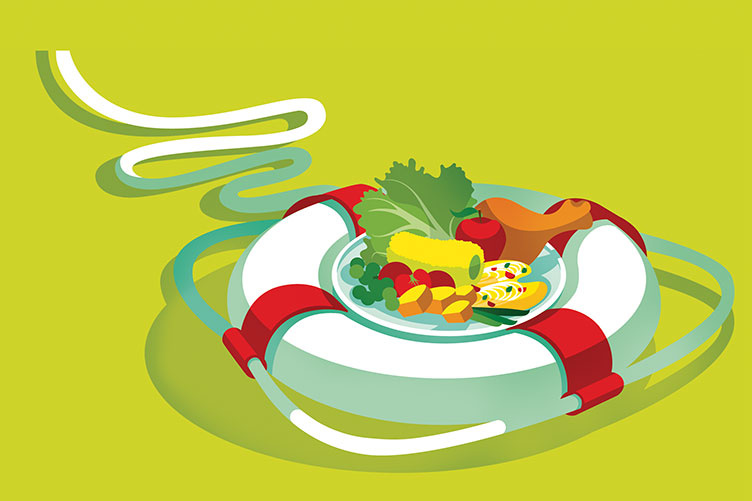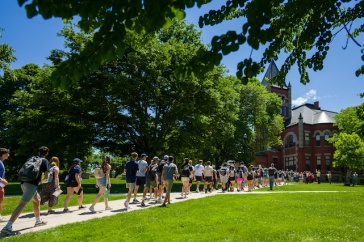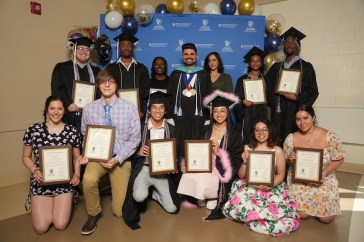
It’s among the most iconic of campus images, the stuff of every prospective college guidebook: groups of students in the dining hall, visiting and relaxing at tables laden with trays of food. And yet some 25 percent of UNH students — both undergrad and graduate — have at least for a time gone hungry. That’s what Alana Davidson ’17 learned when she conducted a survey for a research project as part of her nutrition major the summer before her junior year. “There are UNH students who are eating only one meal a day,” Davidson says. “Food is the first thing that gets cut if they can’t afford to pay rent or tuition.”
“There are UNH students who are eating only one meal a day. Food is the first thing that gets cut if they can’t afford to pay rent or tuition.”
Last December, UNH Dining launched a new program to provide free meals to students in need, thanks in large part to Davidson, whose survey spurred the formation of a campus food insecurity task force and then a program to address the issue. Swipe it Forward provides up to 40 free meals in any UNH dining hall for students who apply directly or are referred to Dining Services by the Counseling Center, Health & Wellness, the Cornucopia Food Pantry or other campus departments. Once in Dining Services’ system, these students can enter the dining halls the same way their classmates do, with a card swipe or a finger scan, preserving their privacy while filling their stomachs.
UNH Student Life and Dining Services established Swipe it Forward with 500 meals, donated by students, which were subsequently supplemented with a $4,000 grant from the Parents Association and $4,200 in private funding. The program is not designed to address long-term food shortages but rather to get students through a challenging stretch — “to sort out a more sustainable way of ‘being’ on campus,” explains dean of students Ted Kirkpatrick, who sits on the task force with Davidson, associate vice president of business affairs David May, clinical assistant professor of nutrition Joanne Burke and Kimberly Babbitt ’84, associate dean of academic affairs in the College of Life Sciences and Agriculture.
May says the message of the program is a simple one: “We want students to know that if they are struggling, they can get help.”
Illustration by Daria Kirpach
Originally published in UNH Magazine Fall 2017 Issue
-
Written By:
Jody Record ’95 | Communications and Public Affairs | jody.record@unh.edu



















































